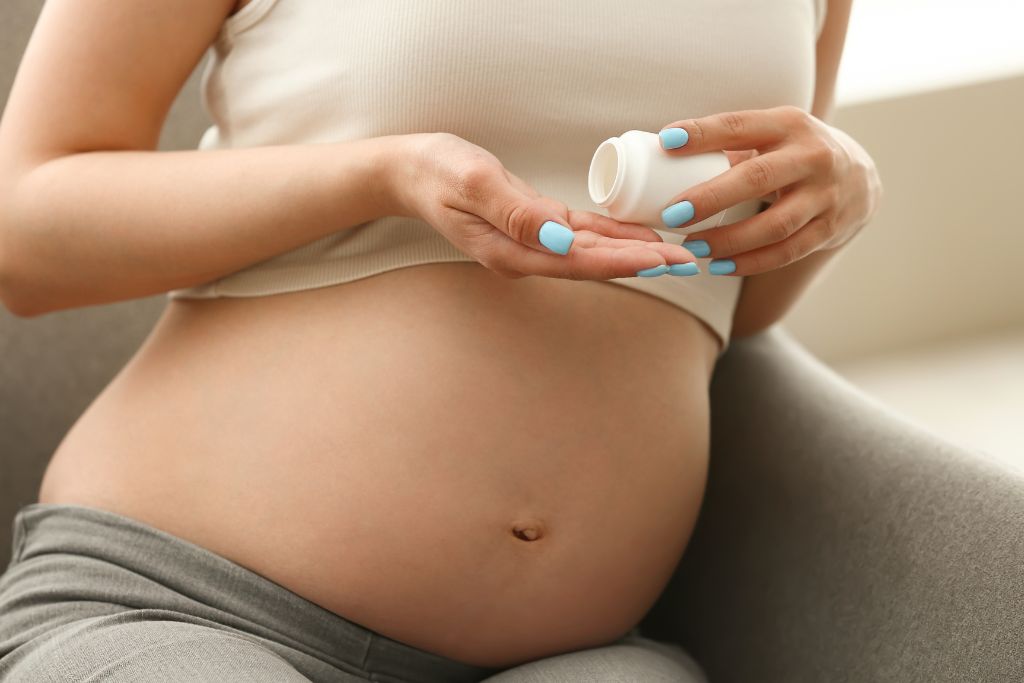In recent years, there’s been a significant rise in the number of babies born with Neonatal Opioid Withdrawal Syndrome (NOWS), a condition caused by prenatal opioid exposure. Understanding NOWS, its implications, and the available treatments is crucial for caregivers and healthcare providers. This comprehensive guide aims to offer insights and practical advice for those navigating this challenging condition
Understanding NOWS
What is NOWS Syndrome?
Neonatal Opioid Withdrawal Syndrome (NOWS) manifests in newborns who have been prenatally exposed to opioids. The condition leads to a series of withdrawal symptoms post-birth, as the newborn’s body adjusts to the absence of the substances it had grown accustomed to in the womb. This syndrome, once categorized more broadly under Neonatal Abstinence Syndrome (NAS), has been more accurately defined to address the specific issues related to opioid exposure, reflecting the nuances of its presentation and management. It’s crucial to note that NOWS is not an indication of addiction in newborns—a common misconception—but rather a state of dependency that needs careful management.
Symptoms of NOWS
The clinical presentation of NOWS can be quite distressing to observe. Affected infants may display a variety of symptoms, which can range from mild to severe. Some of the symptoms parents and healthcare providers may notice include:
- Persistent tremors or shaking
- Intense and inconsolable crying
- Disturbances in sleep patterns, with difficulty in establishing a regular sleep-wake cycle
- Difficulty feeding, which might include a weak suckling reflex
- Gastrointestinal distress leading to vomiting or diarrhea, potentially causing dehydration and weight loss
- Elevated body temperature and, in some cases, fever
- In severe cases, seizures can occur, representing a significant neurological concern
It is important for caregivers and healthcare professionals to recognize these symptoms early to ensure that the newborn receives the appropriate care and intervention.
What is the Difference between NAS and NOWS?
Neonatal Abstinence Syndrome (NAS) and Neonatal Opioid Withdrawal Syndrome (NOWS) are terms used to describe a group of problems that occur in a newborn who was exposed to addictive opiate drugs while in the mother’s womb.
Here are the distinctions between the two:
Neonatal Abstinence Syndrome (NAS):
- NAS is a broader term that traditionally has been used to describe withdrawal symptoms in newborns from a variety of substances, not just opioids, that could include antidepressants, benzodiazepines, barbiturates, and other drugs.
- The term recognizes that babies can exhibit withdrawal from substances other than opioids.
- NAS can also be associated with other maternal factors like smoking, alcohol, or the use of prescribed or non-prescribed medications during pregnancy.
Neonatal Opioid Withdrawal Syndrome (NOWS):
- NOWS is a subset of NAS that is specifically related to opioid exposure, such as heroin, methadone, buprenorphine, and prescription opioids.
- The term NOWS has been adopted by some professionals and organizations to highlight the current opioid crisis and to more precisely describe the syndrome when it is caused by opioid exposure.
- NOWS is used to focus on the management and study of infants exposed to opioids, which may differ from those exposed to other substances.
The symptoms of both conditions are similar and can include tremors, irritability, sleep problems, high-pitched crying, tight muscle tone, hyperactive reflexes, seizures, yawning, sneezing, poor feeding and sucking, vomiting, diarrhea, dehydration, and sweating or fever.
The move towards using the term NOWS is part of an effort to enhance the accuracy of diagnosis and improve communication among healthcare providers and between healthcare providers and families. It is also a step toward reducing the stigma associated with the condition by focusing on the medical nature of the syndrome rather than the circumstances leading to its occurrence.
The Prevalence of NOWS
The rise in NOWS incidence is a direct reflection of the opioid crisis gripping many parts of the world. As the number of individuals, including pregnant women, who use or are dependent on opioids has climbed, so too have the cases of NOWS. Hospitals and neonatal care units report increased admissions for NOWS, stretching resources and necessitating a focused approach to both the babies’ and the mothers’ health care.
The growing prevalence not only signals a need for increased medical care but also highlights the social and emotional costs borne by families and communities. NOWS has brought neonatal opioid exposure into the public health conversation, emphasizing the need for preventive measures, comprehensive treatment protocols, and robust support systems for affected infants and their families.
Causes and Risk Factors
The Opioid Epidemic and Pregnancy
The intersection of opioid misuse and pregnancy has significantly contributed to the rise in NOWS cases. With the opioid crisis continuing to grip many communities, the number of expectant mothers using opioids, including heroin, fentanyl, and prescription pain relievers, has resulted in an increase in prenatal opioid exposure and subsequent cases of NOWS. This has brought prenatal opioid use and its effects on neonatal health to the forefront of maternal-fetal medicine.
Prescription Medications
It’s a lesser-known fact that opioid exposure and the resulting NOWS can also stem from prescribed medications. Pregnant women taking opioids for chronic pain management may inadvertently expose their unborn children to these drugs, emphasizing the importance of meticulous pain management and counseling about the potential risks of opioid use during pregnancy. Health care providers must weigh the benefits of opioid prescriptions against potential risks and explore alternative pain management strategies with their patients.
Diagnosis and Treatment
Screening and Diagnosis
Effective screening for NOWS is a critical component of neonatal care. Newborns suspected of opioid exposure may exhibit specific symptoms or have a known prenatal opioid exposure history. Diagnosis involves monitoring symptoms and may include using standardized scoring systems like the Finnegan score to objectively evaluate withdrawal severity. Accurate and timely diagnosis can significantly affect the quality of treatment and outcomes.
Treatment Approaches
A balanced approach to treating NOWS includes pharmacological and supportive care measures. The use of medications like methadone or buprenorphine can be instrumental in reducing the severity of withdrawal symptoms in newborns. Equally vital is the role of non-pharmacological care, which encompasses strategies such as skin-to-skin contact, breastfeeding (if possible), and creating a low-stimulation environment to support the baby’s recovery and comfort.
The Role of Healthcare Providers
Early Intervention
The pivotal role of early intervention in managing NOWS cannot be overstated. Pediatricians, neonatologists, and the entire healthcare team are essential in promptly recognizing and treating NOWS, thereby minimizing its short- and long-term impacts on the infant.
Education and Support
Informing and educating parents about NOWS is another crucial role that healthcare providers undertake. Knowledge sharing can empower parents, equipping them with the understanding and skills needed to support their infants through recovery and beyond.
Long-term Outcomes and Considerations
Developmental Follow-up
Babies who have experienced NOWS may face developmental and behavioral challenges as they grow. Continuous developmental surveillance and early intervention services are vital in identifying and addressing any issues that may arise, ensuring that these children reach their full potential.
The Importance of Support Systems
The journey of recovery and growth for a baby with NOWS is made more manageable with a strong support network. The collaboration between healthcare professionals, social services, and community resources can provide the comprehensive care and assistance that families need.
How to Help: Practical Tips for Caregivers
Creating a Soothing Environment
Caring for a baby with NOWS includes the creation of a soothing environment. A quiet room with dimmed lighting and limited exposure to loud sounds can significantly calm a baby experiencing withdrawal.
Feeding and Nutrition
Addressing the nutritional needs and feeding challenges associated with NOWS is critical. Small, more frequent feedings and patience with the baby’s feeding rhythm can help ensure proper growth and development.
Addressing Sleep Issues
Sleep disturbances are common in babies with NOWS. Caregivers may find that establishing consistent sleep routines and providing a comforting, swaddled environment can encourage better sleep patterns.
Conclusion
Addressing Neonatal Opioid Withdrawal Syndrome (NOWS) involves understanding the challenges these infants face and recognizing the importance of professional medical care during such a delicate time. While our discussion provides a comprehensive overview of what NOWS entails and the general practices involved in caring for affected infants, this information should not be construed as medical advice. The nuances of medical care for both newborns and their mothers are complex and deeply individualized.
For parents, especially mothers who have struggled with opioid dependence, finding effective treatment and support after pregnancy is crucial—not only for their own health but for the well-being of their children. We focus on providing opioid detoxification for individuals post-pregnancy, ensuring they receive the highest standard of care to overcome dependence with the Waismann Method®. It’s our commitment to help individuals achieve recovery so they can provide the healthiest environment for their children.
If you or someone you know is looking to address opioid dependence with professional detox services, our team is here to help. However, it is critical to consult with your own healthcare provider for advice on the best care for you and your baby. Only a personal medical professional can provide the appropriate guidance based on your specific circumstances.
Disclaimer
The information here is intended for general educational purposes and is not a substitute for professional medical advice, diagnosis, or treatment for NOWS or any other medical condition. Should you have concerns or questions regarding NOWS, please consult with a neonatologist or a pediatrician.
For those seeking assistance with opioid detoxification, please reach out to our specialized team for more information on the Waismann Method. Our focus is on providing state-of-the-art care for our patients, helping them through the recovery process with the utmost respect and medical excellence. Your journey to a healthier future for you and your family starts with getting the help you need for yourself.
Written by Clare Waismann, Registered Addiction Specialist (M-RAS), Substance Use Disorder Certified Counselor (SUDCC II)
Disclaimer: The content of this article is intended for informational purposes only. It is not a substitute for professional advice or consultation. Despite the contributions from Clare Waismann, M-RAS, SUDCC II, and the expertise of our editorial team, information is subject to change, and readers are encouraged to seek direct expert guidance before acting upon any information provided here.
Opiates.com blog references various sources for its content. Always consult with a healthcare professional regarding any concerns or questions.
















